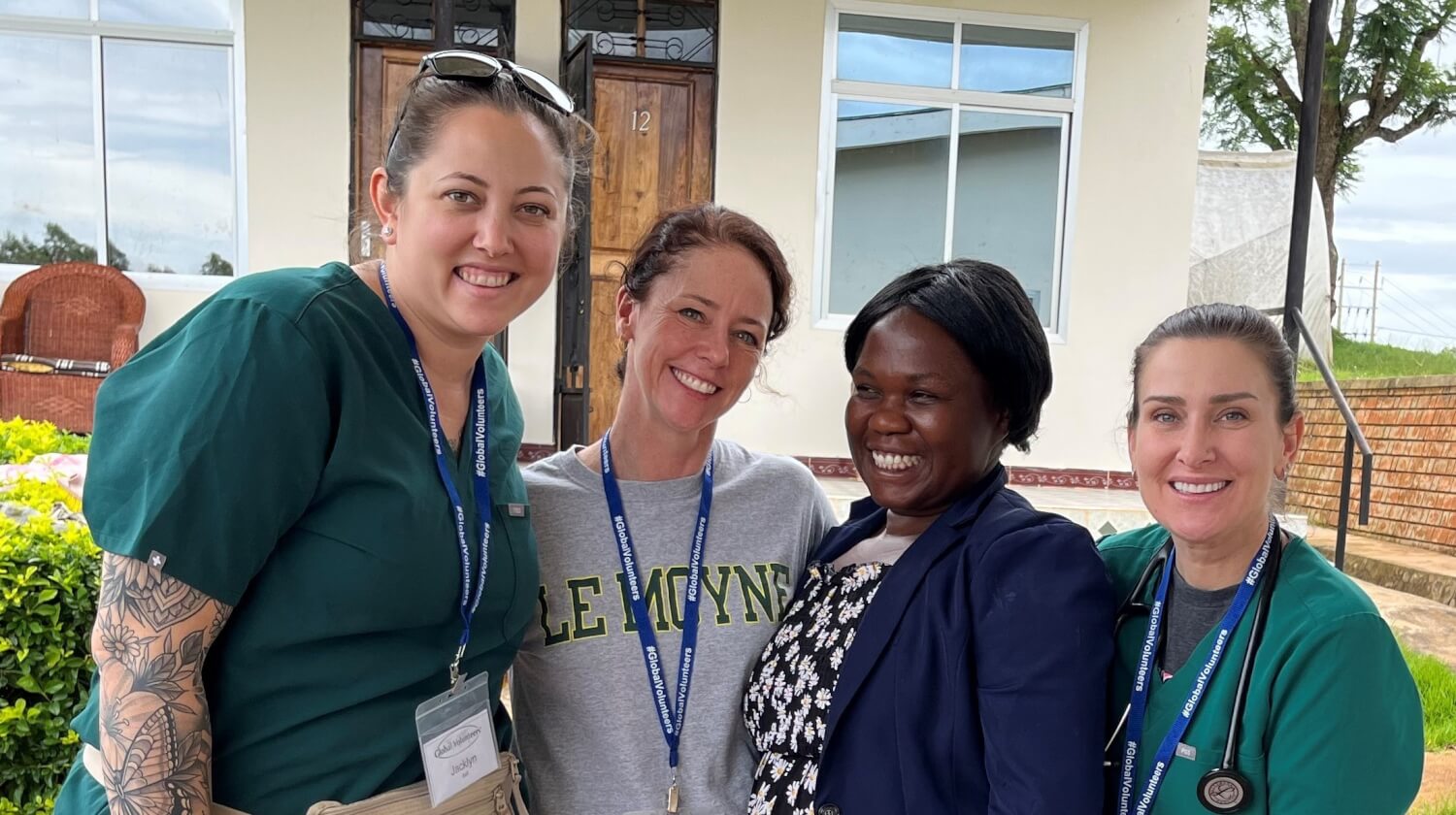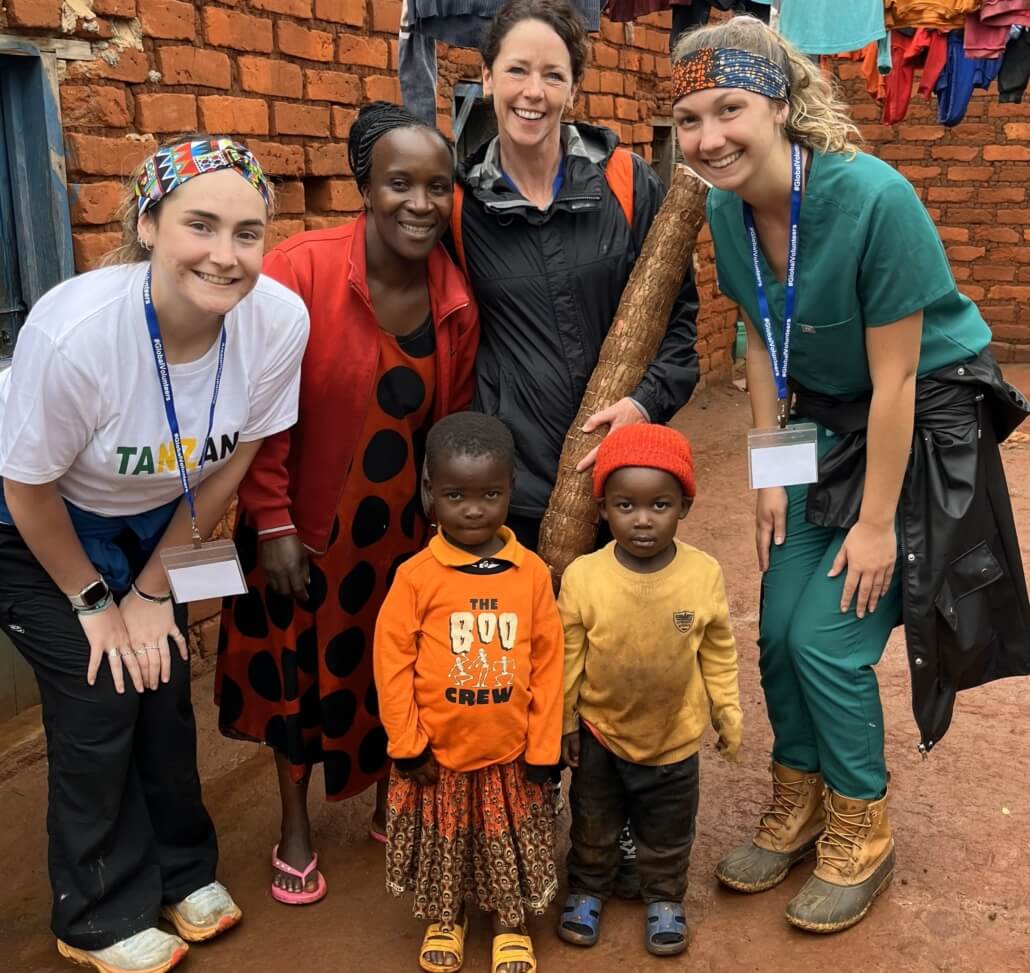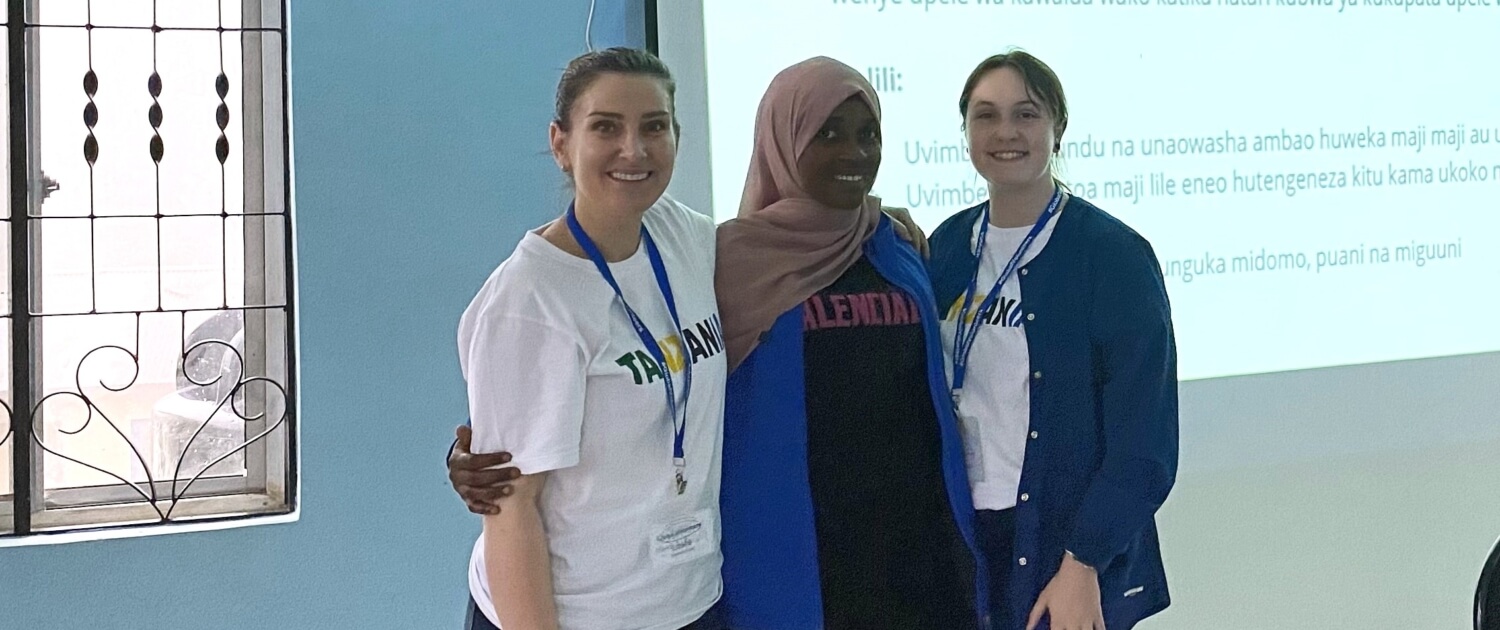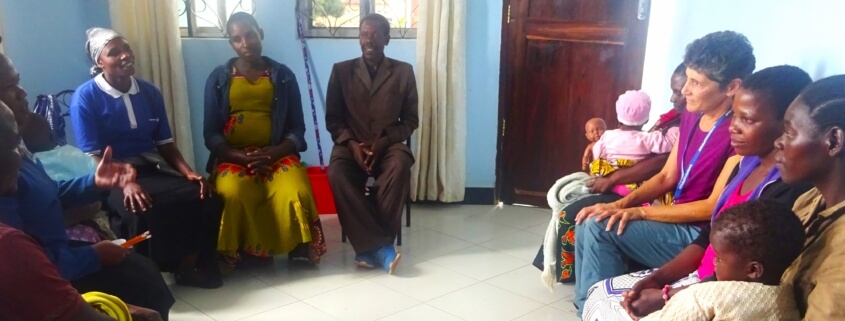Mental Wellness Plan Matches Volunteers’ Skills to Parents’ Needs
The 2024 work plan for the RCP Mental Wellness Initiative in the Ukwega Ward of Tanzania leans heavily on volunteers’ personal and professional experience. Despite cultural, communication and geographical differences between volunteers and local people, we know we all struggle, yearn, worry, dream and cope in reassuringly similar ways. When volunteers candidly share how they navigate daily, and sometimes, life-changing challenges, they give the greatest gift of compassion to others. By collaborating with village parents’ clubs, women’s and men’s recovery groups, and community leaders, they coax new strategies for healthy living to emerge. Learn how we prepare volunteers to extend psychosocial support in this uniquely personal, and highly valuable, way in Tanzania.
Global Volunteers integrated broad-based community psycho-education into the Reaching Children’s Potential (RCP) Program in 2021 to broaden the focus on whole-person healthcare. Through workshops, home visits, public meetings and individual counseling by local and volunteer professionals, we’ve gradually raised the community’s awareness and acceptance of therapeutic mental health interventions. Drawing on evidence-based studies from WHO, the UN and Tanzanian mental health resources, and in collaboration with Tanzanian medical staff and University faculty, we present lessons on mental health topics responding to local people’s needs, questions and interests. In 2023, Global Volunteers greatly accelerated the development of local capacities in the Ukwega Ward through a broad community mental health needs assessment; positioning the Initiative as a recognized regional model for village-based mental health education and intervention. Owing to short-term volunteers’ unique stories of coping with trauma, stress, substance abuse and recovery, peri-natal and generalized depression, chronic mental illness, and related conditions, RCP mothers and fathers have embraced the opportunity to learn how they, too, can overcome mental distress and disorders.
Building a Transatlantic Fellowship
While working to enhance the professional capabilities of RCP Caregivers – the critical on-the-ground staff who educate parents and monitor families’ well-being – volunteers with lived and learned experience also teach important new skills to parents. Throughout 2024, volunteers will assist with depression support groups, alcohol abuse recovery interventions, stress reduction training, and relationship therapies. Every team member’s contribution builds on those of previous volunteers.
For instance, in January 2024, Le Moyne College nursing students arrived in Ipalamwa, the center of our efforts in the Ukwega Ward, just as an aspiring village women’s Alcohol Anonymous (AA) group began. The women needed additional group leadership coaching after their recovery education the previous year, to be able to formally support each other. RCP Mental Wellness Education Manager Regina Mhagama appealed to the new student volunteers, and two quickly stepped up to help out.
“Once we learned that there was the opportunity to help form women’s AA meetings, the conversation shifted immediately to that project, because the need is so great,” said graduate student Nikki Womack-Young. “The women were ready, and we felt we could make the greatest impact there.”

Another graduate student, Jacky Bell, reached out with personal knowledge. “We conducted two AA meetings in one of the health clinic offices. All the women are very new to recovery, and so grateful to get started,” she said. “It felt like I was in the right place, and they were in the right place, and it was very important to show them how to run a meeting. We assured them they could do this themselves with Global Volunteers’ help.” She added: “I learned that spreading that kind of kindness is the best medicine. I’m so grateful to have been able to help the women, and have truly been touched.”
“Regina did a great job soliciting us in ways that were organic and authentic,” said Le Moyne faculty leader Carrie Rewakowski. “Once she found out what our strengths were, she invited us to share what we thought we could bring,” In fact, Carrie knew her New York family also would feel an affinity with the Tanzanian women. “There’s a legacy my family is very proud of,” she explained. “AA has been life-changing in a number of ways for members of my family. They know it’s a ‘boots-on-the-ground’ organization where you need support from other AA members to continue that work.”
Within days, Carrie’s mother had posted messages to friends and family about the need, who replied with donations to encourage and supply the fledgling Ipalamwa group. “The structure is one of fellowship and sharing, so my mom took off from there, and reached out to people she knew would be good donors. I felt pride in them supporting that,” Carrie beamed.

As a psychiatric mental health nurse practitioner student, Carrie lauded the interpersonal therapy (IPT) training provided to the RCP caregivers in 2023. “Group therapy by trained staff and volunteer professionals can work in conjunction with AA, which embraces a philosophy including a higher power and designated steps.” Although not an AA member, Carrie participated in the women’s meeting as a professional, and source of support. She referenced “installation of hope, universality, altruism and the like” as powerful methods to facilitate recovery from substance abuse. “I personally saw all those things happen in the session,” she asserted.
The Le Moyne volunteers are grateful to retired psychologist and Global Volunteers alumnus Hugh Neville, who arrived with another Global Volunteers team the following week to continue supporting and mentoring the women. Collaborating Tanzanian professionals from nearby towns sustain the momentum with both the women’s and men’s recovery groups between volunteer service programs.
This continuity of volunteer service from month to month throughout the years ensures Global Volunteers’ long-term success. “Local people have a lot of trust in Global Volunteers,” Carrie asserted. “And so I think that’s the potential for them – their ability to trust that tomorrow will be a better day, and having the vision and the hope.”
Aside from mentoring the AA group, the 13 Le Moyne students and faculty conducted STI/HIV and family planning workshops, adding their own insights and expertise, and assisted medical staff at the Ipalamwa General Clinic. Carrie contributed her knowledge of therapy skills in home visits and with women of the AA group. “I engaged in conversations about what kinds of emotions the women were having. For instance, what are your thoughts when you consider drinking, how do you feel, what behaviors are driven from that, and how can you change those things? When women shared those things about themselves, it gave a sense of commonality, and another mother could say, ‘Oh, I feel that too.”

As a family nurse practitioner student, Nikki gently raised the harmful effects of alcohol at home visits, and supported Carrie in answering women’s common questions about fears, threats, and anger. “They were like, oh, OK, alright. So what do we do about that?” Carrie continued. “They just were really accepting, and I think they really did have a lot of hope. It makes me emotional. They were so special,” Carrie reflected. “They were really like any other women. Their own acknowledgement of the sanctity of life, and of love, and of being at the center of their families, and wanting to have relationships that were supportive, loving and caring.”
Carrie concluded: “I feel like I did discover what makes the people we worked with happy. It’s the same thing that makes me happy. It’s the same thing that makes anyone happy, right? We all want health, safety, opportunities, and to love and be loved. And realizing that made me understand that we really are so similar, so much more similar than different.”
Looking Ahead in 2024
Volunteers with professional and lived expertise are needed on every service program throughout the year to support and expand ongoing projects in recovery from alcohol abuse, post-partum depression, and gender-based violence. Team members work directly with mothers, fathers and children to increase their knowledge of mental wellness and resilience, and build up the knowledge base of local staff. Our shared initiative is, at its core, designed to become fully self- supporting and self-directed in alignment with the UN Sustainable Development Goals. Volunteers with formal or lived experience in all areas related to mental wellness contribute by assisting staff with:
- Family home visits and mental health assessments
- Parent workshops and community presentations
- Community mental health outreach campaigns
- Village-based AA and Alanon meetings
- Individual and group therapy for RCP families
- Consultation with teachers and community leaders on positive classroom discipline strategies
- Distribution of and education on Tanzanian’s violence against children (VAC) and gender-based violence (GBV) national plan.
We are collaborating with the Iringa Region Mental Health Coordinator and the Kilolo District Social Welfare GBV office to educate families on Tanzania’s National Plan of Action against gender-based violence. Global Volunteers will help educate RCP families about government protections and prosecutions for GBV by way of home visits, workshops and posters. Further, we’re seeking funding to help train community leaders, provide safe spaces for women and children, purchase essential materials and produce outreach campaigns. Volunteers with specialized skills can assist our ground-floor projects in 2024 and beyond in building this support network.




Leave a Reply
Want to join the discussion?Feel free to contribute!